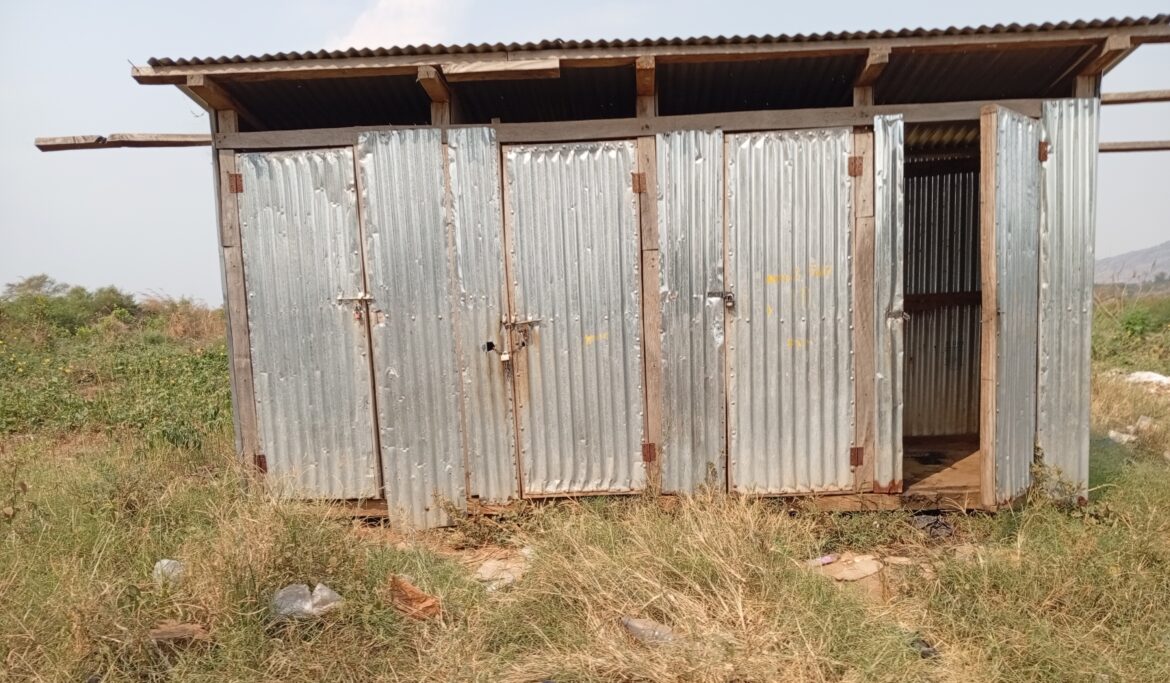By Jenifer James
In the crowded confines of Jebel Protection of Civilians (PoC) Site 3, South Sudan, over 38,000 people are forced to share just 20 toilets. For women and girls, the consequences of this dire situation go beyond discomfort—they face daily struggles for dignity, safety, and health.
Asunta Adok, a resident of the camp, paints a vivid picture of the challenges women and girls endure. “Every day feels like a battle,” she says. “The lines for the toilets stretch endlessly, especially during the morning and evening hours. You have to wait for hours, and sometimes, you’re forced to use makeshift alternatives.”
The limited sanitation facilities exacerbate hygiene issues. Overflowing toilets and the lack of proper waste management have led to rising cases of infections and illnesses. “For women and girls, it’s even worse. We need privacy and safety, but the overcrowded toilets offer neither,” Asunta explains.
The lack of safety is a constant concern. Many women fear venturing to the toilets at night due to the absence of proper lighting and security. “We risk harassment or worse when we go out after dark. Some of us have resorted to waiting until daylight, no matter how urgent the need,” she adds.
For adolescent girls, the situation is particularly harrowing during menstruation. Without adequate facilities or access to menstrual hygiene products, managing their periods in such conditions is a daunting challenge. “We are forced to improvise, but the stigma and embarrassment never go away,” says Asunta.

Asunta Adok, a resident of the Protection of Civilians in Juba (Photo Jenifer James, King News)
The shortage of toilets has also heightened tensions among the camp residents. Arguments and even fights often break out in the long lines. The frustration is palpable, but the resources to improve the situation are limited.
Aid agencies working in the camp are aware of the crisis, but the sheer scale of the population and the limited funding make it difficult to address the problem. While efforts to construct additional toilets are ongoing, the needs far outweigh the resources available.
Asunta plea is simple yet profound: “We need more toilets. We need safety for our girls and women. We need dignity.” For the residents of Jebel PoC 3, access to adequate sanitation is not just about convenience it’s about survival.
This situation underscores the urgent need for increased support and intervention to ensure basic human rights for those living in the camp.
Until then, women like Asunta will continue to bear the brunt of a crisis that could be alleviated with collective action.
Meanwhile, the Chairperson of POC camp 3, Elijah Hon, said the situation is currently bad and needs urgent intervention from the government and organizations.
“We are More than 38000 people and making it hard for us to use these 20 toilets, so we need urgent intervention from government and organizations,” he said.
Back in 2013, there were 1121 toilets constructed in POC for the 38000 people to use, but since then until now only 20 toilets are functioning.



